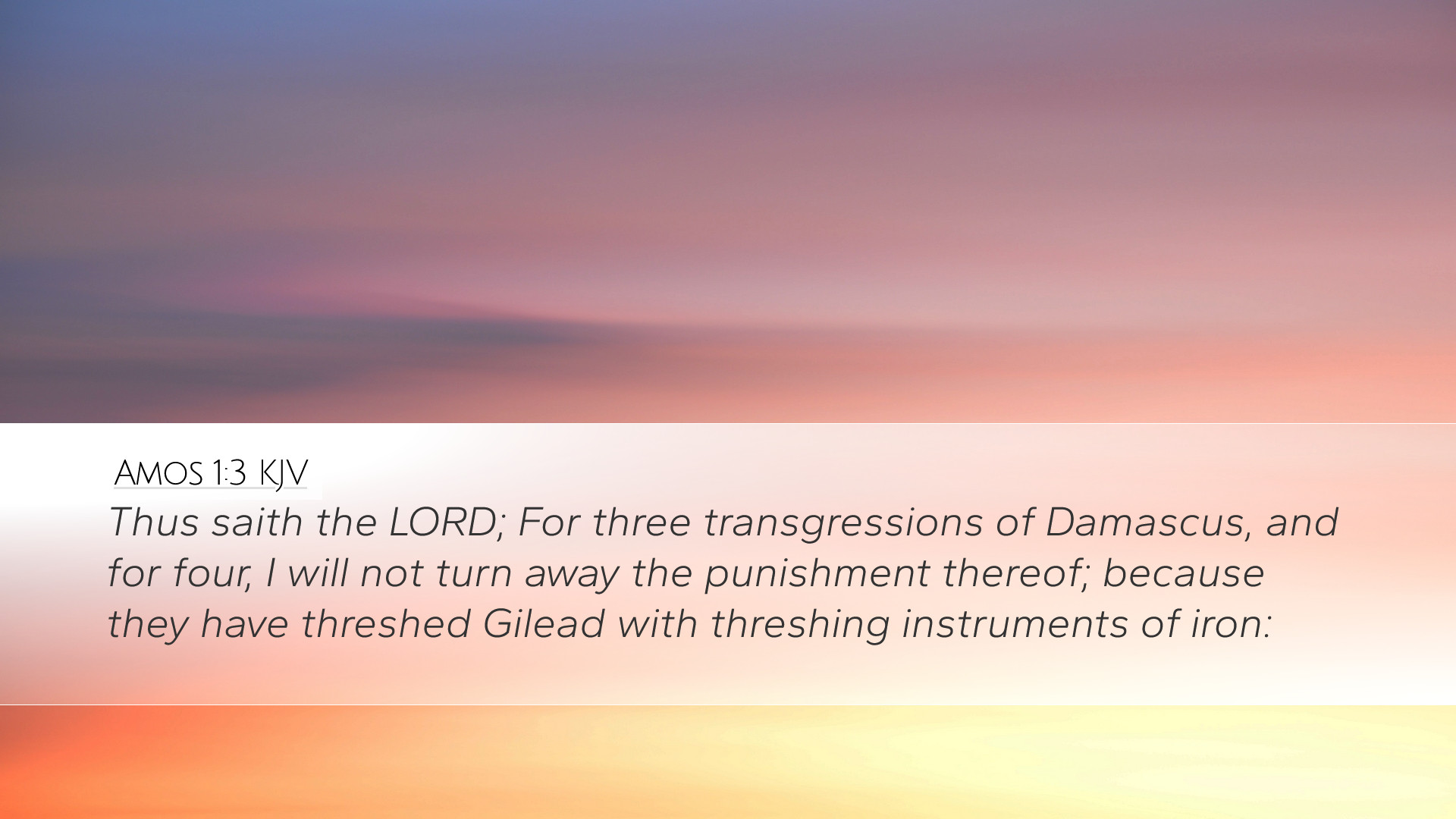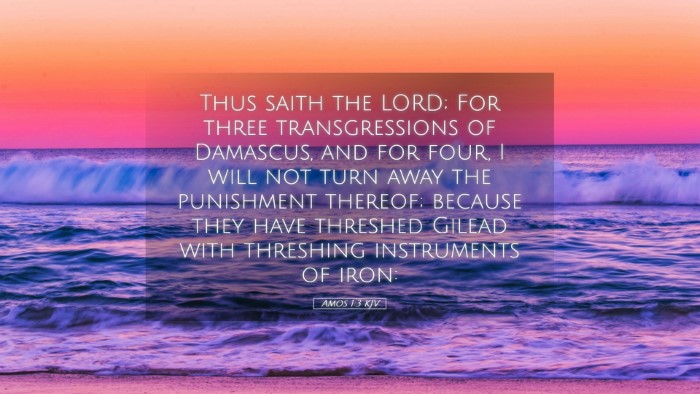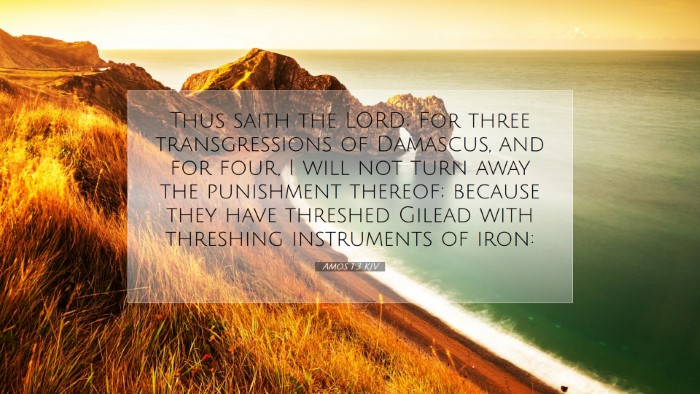Old Testament
Genesis Exodus Leviticus Numbers Deuteronomy Joshua Judges Ruth 1 Samuel 2 Samuel 1 Kings 2 Kings 1 Chronicles 2 Chronicles Ezra Nehemiah Esther Job Psalms Proverbs Ecclesiastes Song of Solomon Isaiah Jeremiah Lamentations Ezekiel Daniel Hosea Joel Amos Obadiah Jonah Micah Nahum Habakkuk Zephaniah Haggai Zechariah MalachiAmos 1:3
Amos 1:3 KJV
Thus saith the LORD; For three transgressions of Damascus, and for four, I will not turn away the punishment thereof; because they have threshed Gilead with threshing instruments of iron:
Amos 1:3 Bible Commentary
Commentary on Amos 1:3
Verse: "Thus saith the LORD; For three transgressions of Damascus, and for four, I will not turn away the punishment thereof; because they have threshed Gilead with threshing instruments of iron."
Introduction
The Book of Amos, one of the Minor Prophets, comprises a profound message focused on social justice and divine judgment. Amos, a shepherd from Tekoa, delivered this message during a time of relative prosperity in Israel, which led to moral decay. In Amos 1:3, the prophet begins his pronouncement of judgment against the nations surrounding Israel, initiating with Damascus.
The Context of the Prophecy
Amos's pronouncement here serves as a precursor to a series of judgments against both Israel and surrounding nations. His focus on Damascus indicates a wider concern for the geopolitical landscape of antiquity, in which Israel found itself. According to Matthew Henry, this judgment illustrates that God holds nations accountable and can chasten them for their acts of oppression and violence.
Analyzing the Transgressions
The phrase "For three transgressions, and for four" is emblematic of a complete measure of sin. Albert Barnes explains this repetition is not a literal count but emphasizes that the sins were abundant and grievous, culminating in divine judgment. The sins of Damascus primarily included their violent actions against Gilead, reflecting a broader pattern of aggression and cruelty.
The Threshing of Gilead
The metaphor of "threshing" denotes oppression and brutality. Threshing instruments made of iron are emblematic of severe and ruthless treatment, indicating the manner in which the inhabitants of Gilead were treated. Adam Clarke emphasizes that this violent imagery illustrates a lack of compassion for the innocent, leading to severe repercussions.
Theological Reflections
This verse presents important theological implications regarding God's justice. It affirms that God is a God of justice who does not overlook the sins of nations, and Amos's words serve as a reminder that judgment is inevitable. As Matthew Henry eloquently states, "Sin is a reproach to any people," and the iniquities of Damascus will not go unpunished.
Implications for the Audience
For the audience of Amos, particularly the Israelites, this message served to warn them against complacency in their own social injustices. Albert Barnes posits that the judgment upon foreign nations should act as a beacon of warning for Israel, reminding them to rectify their societal sins. Those in positions of leadership, both spiritual and civic, are particularly called to reflect upon justice and righteousness.
Conclusion
Amos 1:3 serves as a stark reminder of God's unwavering commitment to justice and the accountability of nations. As we interpret this verse, it's crucial to reflect on our response to social injustices in our communities. Just as Amos calls for judgment against Damascus, he also indirectly prompts Israel—and by extension, the reader—to consider their moral standing before God. In light of this powerful message, may we pursue righteousness and justice, aligning ourselves with God's purposes in our current context.


